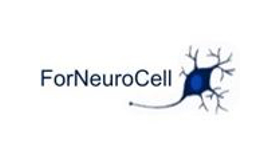FORNEUROCELL II
BAVARIAN RESEARCH ASSOCIATION FOR ADULT NEURONAL STEM CELLS

The Role of Brain-derived Neurotrophic Factor Signaling for Differentiation and Maintenance of Neural Stem Cells and Newborn Neurons in the Hippocampus
Field of work:
Identification of signalling pathways in maintenance and differentiation of adult neural stem cellsLife-long generation of new neurons in the dentate gyrus of the hippocampus is regulated by neurotrophic factors. Increasing evidence suggests that the effects of antidepressants and voluntary exercise involve Brain-derived neurotrophic factor (BDNF) and Trk-B as mediators for the effects of neural activity on neurogenesis. Both embryonic and adult neuroprogenitor cells express high levels of Trk-B. We have found that the survival effects of neurotrophins depend on integrated activation of B-Raf and PI-3K-Akt signaling pathways, and that the scaffold protein Bag-1 plays an essential role in this process. Bag-1 appears highly interesting because it is not only a scaffold protein for B-Raf and Akt, but also for glucocorticoid receptors. We also found that SC1, a protein originally discovered as p75NTR interacting protein that mediates the effects of p75NTR on cell cycle regulation, also interacts with Trk-B. In this project, we will generate mouse models that allow conditional inactivation of Bag-1 and SC1/PRDM4 in adult neural stem cells of the dentate gyrus and the subventricular zone. The goal is to characterize the role of BDNF in neuroneogenesis in the dentate gyrus of the hippocampus and to analyze the molecular signaling pathways involving Bag-1 and SC1 that are used by BDNF in adult stem cells in order to promote their differentiation, survival, migration and integration into existing neural networks in the hippocampus of adult mice. This should define new molecular targets for interference in disorders such as depression and neurodegenerative disorders like Alzheimer’s disease.



